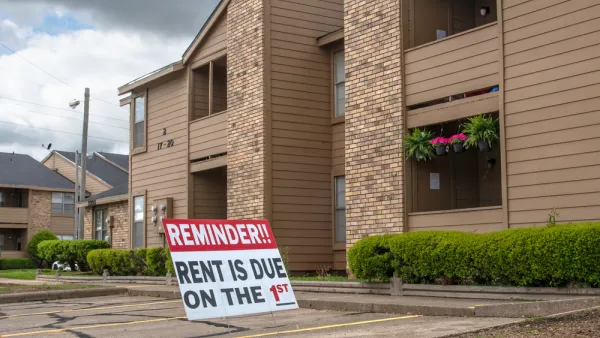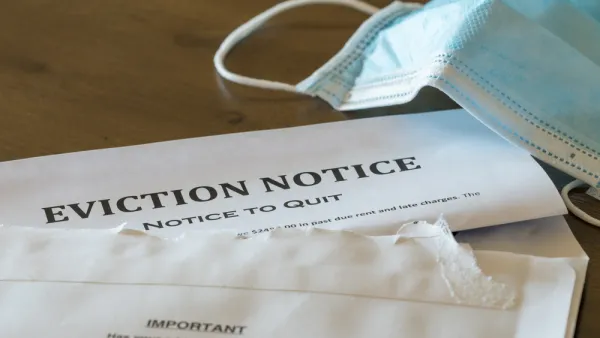The majority opinion claims the CDC overstepped its authority and calls for congressional approval of any further eviction moratoriums.

In a decision split between the Court's conservative and liberal justices, the Supreme Court "rejected the Biden administration’s latest moratorium on evictions, ending a political and legal dispute during a public health crisis in which the administration’s shifting positions had subjected it to criticism from adversaries and allies alike."
As reported by Adam Liptak and Glenn Thrush, "[t]he decision puts hundreds of thousands of tenants at risk of losing shelter, while the administration struggles to speed the flow of billions of dollars in federal funding to people who are behind in rent because of the coronavirus pandemic and its associated economic hardship."
The Court's decision stated that the Centers for Disease Control and Prevention (CDC) "had exceeded its authority" by using a "a decades-old statute that authorizes it to implement measures like fumigation and pest extermination" to impose a sweeping eviction moratorium. According to the majority opinion, "[i]f a federally imposed eviction moratorium is to continue, Congress must specifically authorize it."
A statement from the White House criticized the decision, saying "[a]s a result of this ruling, families will face the painful impact of evictions, and communities across the country will face greater risk of exposure to Covid-19." States such as New York and California have extended their own eviction moratoriums as they struggle to distribute the millions in rental assistance funds that remain stuck in bureaucratic limbo.
FULL STORY: Supreme Court Ends Biden’s Eviction Moratorium

National Parks Layoffs Will Cause Communities to Lose Billions
Thousands of essential park workers were laid off this week, just before the busy spring break season.

Retro-silient?: America’s First “Eco-burb,” The Woodlands Turns 50
A master-planned community north of Houston offers lessons on green infrastructure and resilient design, but falls short of its founder’s lofty affordability and walkability goals.

Delivering for America Plan Will Downgrade Mail Service in at Least 49.5 Percent of Zip Codes
Republican and Democrat lawmakers criticize the plan for its disproportionate negative impact on rural communities.

Test News Post 1
This is a summary

Test News Headline 46
Test for the image on the front page.

Balancing Bombs and Butterflies: How the National Guard Protects a Rare Species
The National Guard at Fort Indiantown Gap uses GIS technology and land management strategies to balance military training with conservation efforts, ensuring the survival of the rare eastern regal fritillary butterfly.
Urban Design for Planners 1: Software Tools
This six-course series explores essential urban design concepts using open source software and equips planners with the tools they need to participate fully in the urban design process.
Planning for Universal Design
Learn the tools for implementing Universal Design in planning regulations.
EMC Planning Group, Inc.
Planetizen
Planetizen
Mpact (formerly Rail~Volution)
Great Falls Development Authority, Inc.
HUDs Office of Policy Development and Research
NYU Wagner Graduate School of Public Service





























